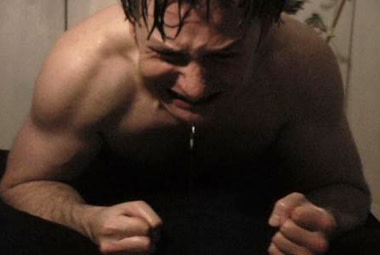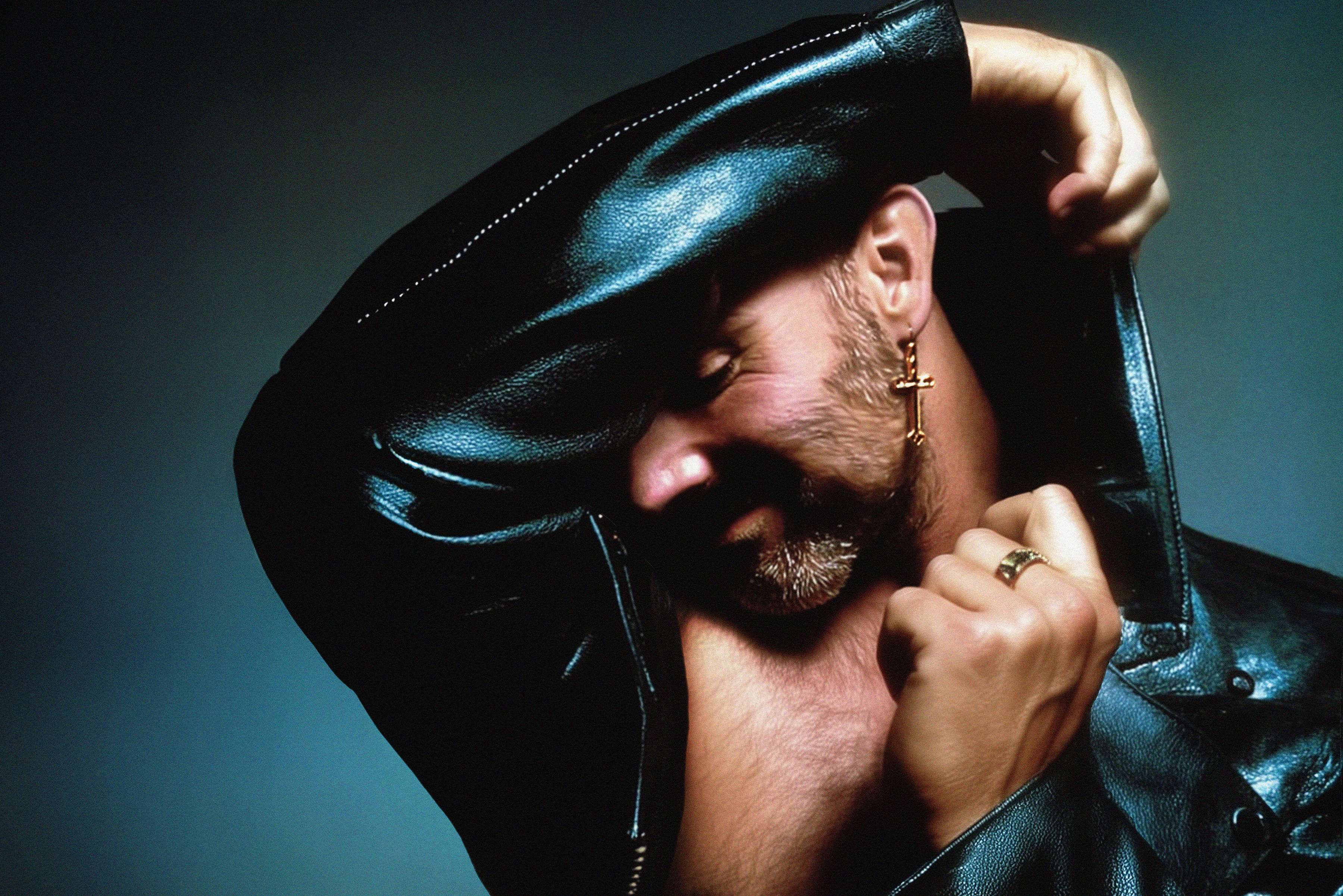TBA 2010: Flooding With Love For The Kid

Okay, Zachary Oberzan, we hear your title’s implicit wish: that we flood with love…for you. I know, I know, the phrase is in the original dialogue of the novel/Rambo film First Blood, which you’ve faithfully recreated alone in your tiny New York apartment. But over and over your movie presents us with variations of–well, you. And one of the you’s, as a matter of logistical necessity, eventually professes love for the other you. And we’re just supposed to roll over and follow your lead.
Well, I may be wise to you, Kid–but I’m still gonna fall for it. This film is one of those undertakings that earns accolades regardless of the product because:
a) you thought of it, and,
b) you did it.
Luckily, there’s more to recommend this movie. In the context of the home-film revolution, The Kid is a beacon of inspiration. Amid a million self-serving webcam rants that channel Stuart "good enough, smart enough" Smalley, Kid’s ambition challenges other no-budget filmers to think and work harder. "We may not have the money, honey," it seems to say, "but we’ve sure got the time."
Rambo suffers. These days, we would call his malady PTSD (post-traumatic stress disorder). A vagrant vet whose military service has left him in the lurch, in First Blood, Rambo the stoic war hero is harassed to the breaking point by Teasle the reactionary small-town sheriff. The relevance of veteran reassimilation in modern America needn’t be explained beyond this exchange:
Teasle: "I don’t kill for a living."
Trautman: "No, you tolerate a system that does it for you. And when they get back from the war, you can’t tolerate the stench of death on them."
Oberzan fully inhabits both the character that suffers, and the character that torments, even as the plot progresses and Rambo becomes the assailant and Sherriff Teasle the victim. (Meanwhile, Oberzan also portrays all the other poor bastards on the scene: deputies, woodsmen, state police, and special forces). It’s a multi-faceted exercise in empathy–indeed, love–for all the flawed but well-meaning men pitted against each other in the fray.
Speaking of flaws, here’s what Oberzan’s much-boasted $95 budget didn’t buy:
A dialect coach. A couple of Oberzan’s accents, most notably the southern twang he uses to play Sheriff Teasle, are inconsistent. Fortunately, even a badly-done accent helps differentiate one character from another so the attempt ultimately proves useful. But when Oberzan acts so well, you wish he could sell the accents a little better.
A musical score. The credits don’t attribute the music to anyone so I’m guessing the budget didn’t cover it. Musical moments seem sparse and short, and some of them are choral–so maybe Oberzan has lawfully used public-domain works and short samples. Still, as a scrupulous producer he should tell us what we’re hearing.
One thing that the promos don’t do justice, is how heroically Oberzan attacks his "action sequences", crawling all over his apartment, rustling tree-branches around, wearing bloody (not ketchuppy) wounds and painful (not putty-like) scars. At one point he even snares and skins a small teddy bear for survival food. With his quick cuts between characters and apt suspense, you almost get swept up enough in the action to forget that it’s all one guy.
All in all, you can’t help but love Oberzan, and The Kid, for conquering against all odds.




